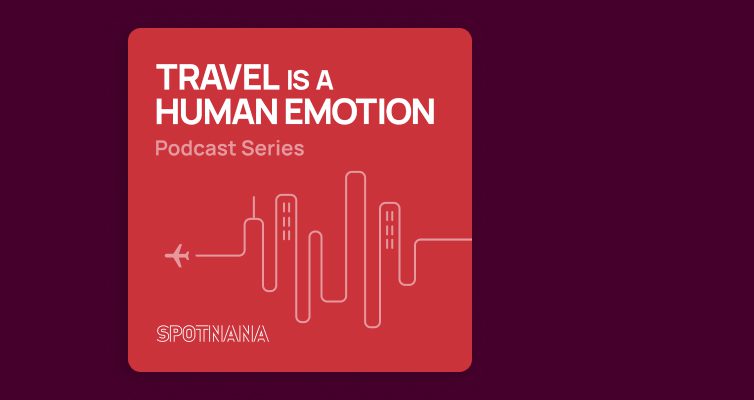Building a New Infrastructure for Corporate Travel

It has become clear to both Spotnana and our customers that the only way to create a more free and open travel industry is with technology.
As we build new solutions to solve legacy pain points in travel, three of the industry’s most long-lasting pain points will evolve to provide a better experience to travelers.
Missed the first part? Read it here.
Pain Point #4: The Limitations Of The PNR
Corporate travel managers are used to a service model where the TMC creates bookings which are represented in the so-called Passenger Name Record (PNR).
These PNRs are then loaded with relatively random and unstructured lines of information — sometimes totaling more than 200 lines of content. This data is used to transfer relevant information about the booking to all the other systems that provide support and services for corporate travelers.
It is not uncommon for a single PNR to be retrieved and queued to other systems more than 100 times from the creation of the booking to the day of travel. Each time, the same process takes place conducted by a software-based robot that reads all the data lines and extracts the relevant information for use somewhere else.
Even a critical data element such as the mobile phone number is loaded into one of these random remark lines; there is no standard in place for where to put the number or how to validate the actual number entered. This limitation creates significant inefficiency and requires manual data correction work to provide the traveler with the expected services.
Spotnana changes this process with our new cloud-based order management system where every single data element has a dedicated home to live in with instant data quality validation.
This enables a much higher level of intelligent workflow automation, as well as the ability to integrate other external systems with the data without relying on the traditional PNR queuing model via the GDS platform.
Pain Point #5: Open Access To Other Services
The traditional corporate travel program supported by a single or multiple TMCs is restricted in terms of the external services or solutions a corporate travel buyer can activate.
The servicing TMC rejects access to the booking data for an external system unless their client either pays for access to the data or the corporate customer agrees to pay an extra fee for using their own data for a different purpose.
It is fascinating to think that travel buyers around the world have accepted being unable to use the data they have paid their TMC to create for any other reason, but that has become the standard operating model over time.
Spotnana changes this as we have created open APIs available for any third-party solution to connect with and use for accessing the booking data for a given customer, as long as the customer provides consent for this digital access to take place.
Spotnana, importantly, does not decide which external solutions our customer can use. Our role is as custodian of the booking data created on our platform, not the controller of what other services the data can be used for. We are a true open ecosystem designed to give the customer freedom of choice for all services.
Pain Point #6: Supplier Contract Efficiency
It is no secret that travel buyers view the area of preferred supplier contracts as one of the most inefficient parts of the overall travel program.
Each year, travel buyers around the world spend an incredible amount of time (and money) negotiating a suite of air fares and hotel rates with the relevant suppliers but once the negotiations are completed, and the contracts signed, the commercial relationship moves into a “random luck” management mode.
Airline contracts are typically based on some form of volume or market share commitment from the buyer in return for a discounted airfare, either in the form of a reduced price at point of booking or some “back-end” deal where the airline will return a certain percentage of the purchased ticket value.
While this sounds like a straightforward deal to manage, both parties typically end up spending significant time on each side trying to find out what was bought (or not) and reach some form of a compromise.
The most typical dilemma happens around a market share deal where the airline will claim the buyer missed the target. What if it turns out, though, that the airline caused the missed target by not offering the deal when the searches were made or the TMC staff selected alternative options when they made offline bookings?
Many travel buyers suspect this is the case, but have no realistic way to provide evidence, unless they pay for a very expensive manual audit designed to investigate which fares were available at a given point in time in a given market — basically a hopeless task to being with.
Spotnana solves this problem by empowering travel buyers to look back in time and analyze the “supplier deal compliance” level for all searches performed during a given time range. This shows how often (or not) a given negotiated airfare is shown as being available to book, and effectively provide documentation for the buyer side.
Travel buyers can then present a report to the airline showing, for example, that a negotiated airfare was only available for 60% of the searches for a specific city pair and the target, therefore, should be reduced by 40%.
The report, however, may also show the airfare was available but not selected in 25% of all searches, providing the airline evidence that the travel buyer failed to meet their 80% market share commitment.
This is a complex pain point to address, and the only possible solution is based on credible transparent real-time data insights — this is exactly what Spotnana provides as a result of our single cloud-native open platform.
Imagine how much time (and money) you can save by working smarter, not harder.
To find out more about how Spotnana can help revolutionize your travel program, send me an email at johnny@spotnana.com or sign up for a demo here.






